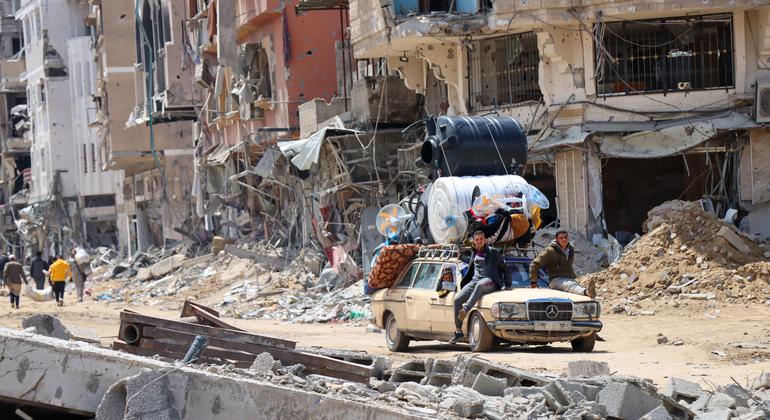The ongoing Israeli bombardment of the Gaza Strip, including Gaza City, Rafah, and central Gaza, has resulted in numerous casualties, including children. The strike on the Maghazi refugee camp in central Gaza has led to a significant number of injuries and deaths. The situation in Gaza is dire, with food insecurity experts warning of an imminent famine in the north due to the intense Israeli bombardment and ground offensive in response to Hamas-led terror attacks. Markets in Gaza lack basic food items, and there is a concerning trend of humanitarian aid being resold by informal street vendors, including young children.
An appeal has been launched to provide assistance to 3.1 million people in Gaza between now and the end of the year. The appeal aims to help 2.3 million people in the Gaza Strip, where more than half the population is facing catastrophic levels of hunger. The UN agency for Palestinian refugees, UNRWA, plays a crucial role in the humanitarian response in Gaza and the West Bank. Two-thirds of the population of Gaza are Palestine refugees registered with UNRWA, and nearly one million displaced people are sheltered in UNRWA and public shelters. UNRWA has over 13,000 staff in Gaza, with more than 3,500 engaged in aid relief efforts.
Access to clean water remains a major humanitarian concern in Gaza, with only one of three water pipelines from Israel operational at 47% capacity. There are fewer than 20 groundwater wells that only work when fuel is available, and no fully functional wastewater treatment systems, leading to sewage overflow in many areas and increasing public health risks. A recent WASH assessment in Rafah found that one-third of the water sources in the 75 sites assessed were unsafe for drinking, affecting approximately 750,000 people.
The dire situation in Gaza has led to a rise in reselling of humanitarian aid in markets, with informal street vendors, including young children, taking advantage of the scarcity of basic food items. The lack of access to clean water and functioning wastewater treatment systems has further exacerbated the humanitarian crisis in Gaza, leading to public health risks. The appeal for assistance aims to provide support to 3.1 million people in Gaza, including food aid and other essential services, to address the urgent needs of the population facing famine and hunger.
The ongoing Israeli bombardment and ground offensive in response to Hamas-led terror attacks have worsened the humanitarian situation in Gaza, leading to a rise in casualties and displacement. UNRWA plays a crucial role in providing aid relief to the population in Gaza and the West Bank, with over 13,000 staff members working to support those in need. The appeal for assistance aims to address the urgent needs of the population facing famine, lack of access to clean water, and other challenges in Gaza, highlighting the importance of international support to alleviate the suffering of the people in the region.









